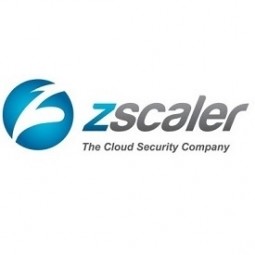Download PDF
Enhancing Security and Productivity: YMCA of the USA's Adoption of Zscaler
Technology Category
- Cybersecurity & Privacy - Malware Protection
Applicable Industries
- National Security & Defense
- Telecommunications
Use Cases
- Tamper Detection
- Usage-Based Insurance
The Challenge
The YMCA of the USA (Y-USA), a leading nonprofit organization, was grappling with a significant challenge in managing its internet security. The organization's small IT team was spending an excessive 15 hours per week on remediating malware on employee systems, despite having anti-virus software and controls in place. The challenge was to balance the need for employees to use the Internet and Web 2.0 applications with the need to control corporate liability and security. Furthermore, Y-USA was unable to control Web 2.0 and could not trace the source of malware infections. The existing anti-virus approaches were failing to keep up with new threats, leading to a pressing need for a more effective solution.
About The Customer
The YMCA of the USA (Y-USA) is the nation's leading nonprofit organization committed to strengthening communities through youth development, healthy living, and social responsibility. Y-USA is comprised of a national resource office and more than 2,600 YMCAs with approximately 20,000 full-time staff and 500,000 volunteers in 10,000 communities across the country. The organization was facing significant challenges in managing internet security, particularly in controlling Web 2.0 and tracing the source of malware infections. The IT operations at Y-USA, headed by Pat Ward, were spending a significant amount of time each week on remediating malware on employee systems.
The Solution
In response to the challenge, Y-USA evaluated several options including products from Websense, Bluecoat, and Barracuda. However, they ultimately chose the Zscaler service. Zscaler offered effective security protection, deep insights into user usage of the internet, and flexible reporting. Since deploying the Zscaler service, Y-USA did not experience a single threat incident, a significant improvement from nearly 7 incidents a week. The IT team discovered that users were getting infected through malicious ads on Google sites, rather than visiting risky or inappropriate sites. This insight was crucial as a simple URL filtering appliance would not have solved this problem. Additionally, Zscaler's flexible reporting allowed Y-USA to create multiple reports easily, providing valuable insights into productivity.
Operational Impact
Quantitative Benefit
Related Case Studies.

Case Study
Vodafone Hosted On AWS
Vodafone found that traffic for the applications peak during the four-month period when the international cricket season is at its height in Australia. During the 2011/2012 cricket season, 700,000 consumers downloaded the Cricket Live Australia application. Vodafone needed to be able to meet customer demand, but didn’t want to invest in additional resources that would be underutilized during cricket’s off-season.

Case Study
SKT, Construction of Smart Office Environment
SK T-Tower is the headquarters of SK Telecom. Inside the building, different types of mobile devices, such as laptops, smartphones and tablets, are in use, and with the increase in WLAN traffic and the use of quality multimedia data, the volume of wireless data sees an explosive growth. Users want limitless Internet access in various places in addition to designated areas.

Case Study
Data Capture for Afghanistan Forces
Electronic equipments on the field of Afghanistan provided information on the status of the vehicle and to identify potential threats surrounding it to the British Force. The monitoring and interpretation of this data requires robust and sophisticated digitization for data capture and communication.








